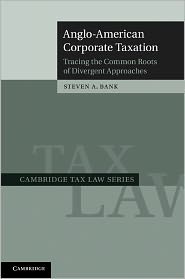The U.K. and the U.S. have historically represented opposite ends of the spectrum in their approaches to taxing corporate income. Under the British approach, corporate and shareholder income taxes have been integrated under an imputation system, with tax paid at the corporate level imputed to shareholders through a full or partial credit against dividends received. Under the American approach, by contrast, corporate and shareholder income taxes have remained separate under what is called a “classical” system in which shareholders have received, until very recently, little or no relief from a second layer of taxes on dividends.
This excerpt is the introduction from a book entitled Anglo-American Corporate Taxation: Tracing the Common Roots of Divergent Approaches (Cambridge University Press 2011). The book explores the evolution of the corporate income tax systems in each country during the 19th and 20th centuries to understand the common legal, economic, political, and cultural forces that produced such divergent approaches and explains why convergence may be likely in the future as each country grapples with corporate taxation in an era of globalization.
Monday, October 10, 2011
Bank, Anglo-American Corporate Taxation: Tracing the Common Roots of Divergent Approaches
Steven A. Bank, University of California, Los Angeles, School of Law, has posted the introduction to his new book, Anglo-American Corporate Taxation: Tracing the Common Roots of Divergent Approaches, Cambridge University Press, 2011. Here's the abstract:
